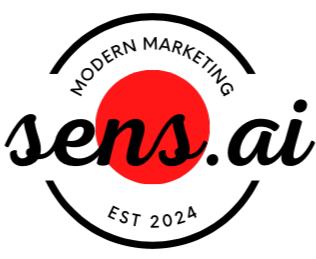Does Ai have a Marketing Black Belt?
Not without a little human guidance
AI is a powerful tool, but can businesses truly hand over their entire marketing operations to software? The answer is a resounding no—at least, not if they want to maintain a strong brand identity and customer trust.
AI’s Strengths in Marketing
AI excels at automation, data analysis, and optimization. It can generate content, personalize customer interactions, and streamline ad targeting. But while AI can produce compelling copy and analyze engagement metrics, it lacks creativity, emotional intelligence, and the ability to craft a truly unique brand voice.
AI tools like ChatGPT and Jasper are excellent at generating text, but they struggle to create deeply compelling narratives that resonate on a human level. Marketing isn't just about providing information; it's about storytelling, emotional connection, and brand differentiation—areas where AI still falls short.
The Limitations of AI in Marketing
While AI can handle data-driven tasks efficiently, it lacks the human touch required for brand storytelling and strategic vision. AI doesn't understand emotion, culture, or the nuances of human psychology in the same way that experienced marketers do.
For example, while AI-generated emails may have optimized subject lines and content based on engagement data, they often lack originality and can feel robotic. This can lead to lower trust levels among customers who crave genuine, human interactions.
Another key limitation is the inability to innovate beyond what’s been done before. AI generates content based on existing data and patterns, but groundbreaking marketing strategies require out-of-the-box thinking—a uniquely human trait.
The Risk of Over-Automation
Too much AI in marketing can lead to impersonal customer interactions. AI chatbots and automated emails can handle basic customer queries, but without human oversight, they risk making mistakes that damage brand reputation.
A well-known example of AI misfiring in marketing is when chatbots or recommendation engines suggest inappropriate or irrelevant content due to algorithmic errors. These mistakes highlight why AI still requires human supervision to ensure quality control and brand consistency.
Finding the Balance Between AI and Human Creativity
The best marketing strategies use AI as a tool, not a replacement. The key is to blend AI-driven efficiency with human creativity and strategy.
For example:
Use AI for data-driven decision-making (e.g., ad targeting, analytics, and performance tracking), but rely on humans for creative execution and storytelling.
Implement AI chatbots for quick responses, but have human agents available for more complex customer interactions.
Automate social media scheduling and A/B testing, but have humans curate original, engaging content.
Businesses that integrate AI without losing their brand's personality and unique voice will stand out in a crowded digital space. AI can handle the heavy lifting, but human marketers still hold the black belt when it comes to creativity and emotional connection.
Final Thoughts
AI is a fantastic assistant in the marketing dojo, but it isn’t the sensei. Businesses that blindly rely on AI for their entire marketing strategy risk losing authenticity and customer trust. By striking the right balance between automation and human ingenuity, companies can achieve marketing mastery and create campaigns that truly resonate.
